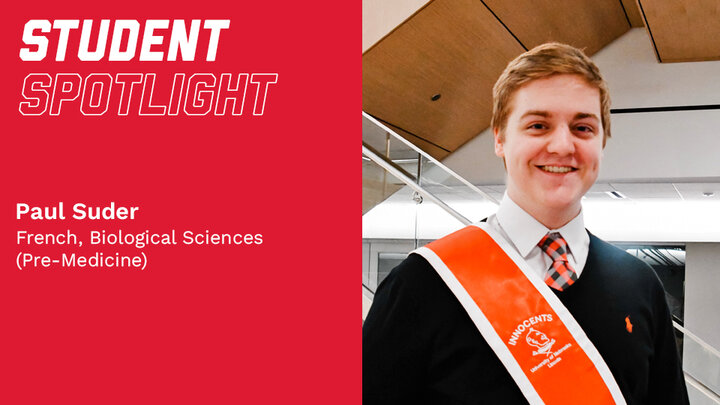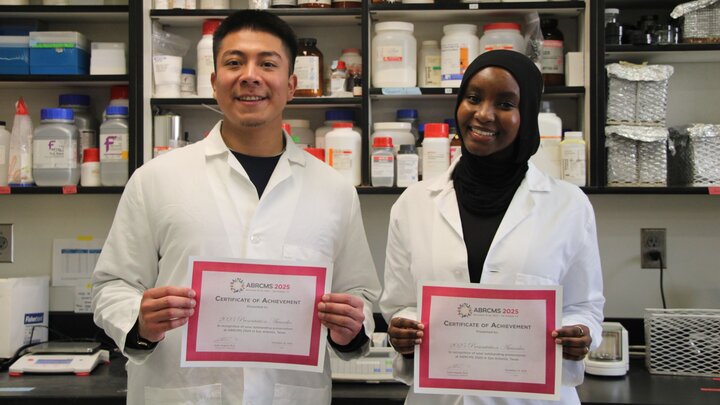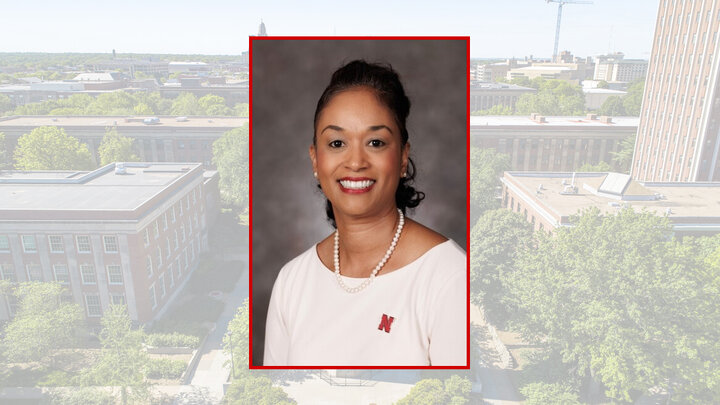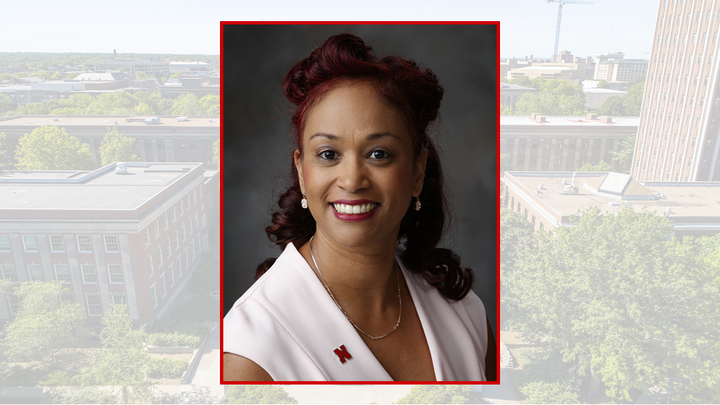Major: French and Biological Sciences (Pre-Medicine)
Minors: Biochemistry, Human Rights and Humanitarian Affairs, and Philosophy
Hometown: Omaha, Nebraska
Paul Suder is from Omaha, Nebraska, and is passionate about learning. Knowing he wanted to pursue pre-medicine, he chose to double major in biological sciences and philosophy when he started at the University of Nebraska-Lincoln.
"I knew that I wanted to pursue pre-medicine, and a life sciences major was a great way of furthering my passions for physical science while completing pre-requisites for medical school and the MCAT," says Paul.
Once in the College of Arts and Sciences, he let his curiosity move him to explore even more areas of interest.
"I pursued a minor in French as a means to fill out my degree by pursuing my interest in language learning," says Paul. "After falling in love with the Department of Modern Languages and French section, I soon swapped my philosophy major for French in order to get closer to the French-speaking world and improve my language learning ability. I haven't looked back since.”
Now a senior, Paul is interning at Lincoln Literacy, a nonprofit that assists refugees and immigrants in learning English and helps them transfer their skills into placement within the local job market.
"I chose to intern with Lincoln Literacy because my values align with their mission to provide quality and accessible English education to immigrants, refugees, and all those who want to improve their understanding of the language and its role in our community," says Paul.
Paul develops curricula for English-language learner classes, instructs students at various levels from diverse backgrounds, and helps with GED exam preparation for the Reading and Writing sections.
This experiential learning internship has been the perfect place for Paul to share his passion for learning while gaining knowledge about other languages from his students.
"I am grateful for the opportunity to teach my students and learn snippets of their different languages; the eagerness and drive with which my students approach their coursework is reinvigorating, as a teacher,” says Paul. "So often am I focused on delivering the material that I fail to see that the students share a love and desire to learning that is vital to learning a new language, itself a crucial skill for employment and engagement in the community."
As he has had the chance to connect more fully with them and their commitment to learning, he has found the experience impactful and fulfilling, leading to mutual gratitude between him and his students.
"Learning of the various backgrounds that students bring to my classes reinforces my love for teaching — some students have very little apparent need for English education, but they choose to come because they want to improve this skill in the long term, regardless of their age or current employment status," says Paul.
He has found that the internship has cultivated practical skills and insight in effectively communicating language rules for all learning levels.
"My internship has taught me the value of constant positivity and adaptability and a willingness to learn with your students, says Paul. "Being able to approach English from the perspective of a non-native speaker has introduced me to new nuances and rules of the language that I would have never recognized if I wasn't in this position."
After working with a nonprofit, Paul is committed to exploring ways to utilize his experience, love of language learning, and the broad education he has gained to give back after graduation.
"This internship has been vital in reinforcing my goal to work in the health communication and health education spheres after I graduate. Upon my completion of an MPH and an MD, I hope to work with a global health NGO or agency like MSF [Médecins Sans Frontières], the WHO, or the Task Force for Global Health to develop educational materials translated to
underrepresented languages to encourage members of marginalized communities to pursue medicine as a vocation," says Paul. "Additionally, being able to pursue medical missions in underserved and under-supported countries requires cultural competency and empathy that have also been cultivated by my current work with a nonprofit."




